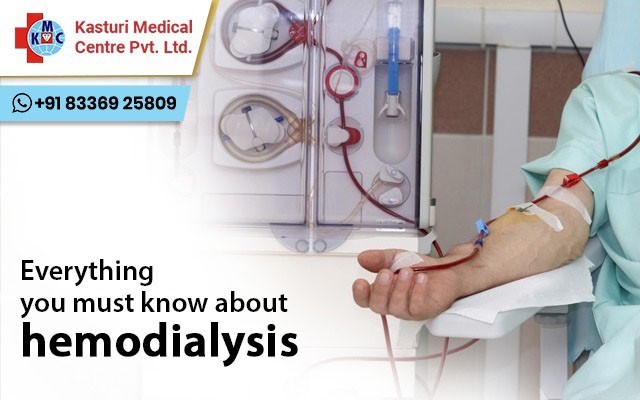Dialysis refers to a medical procedure that is used to treat people with chronic kidney disease or acute kidney injury. This process involves removing waste products, excess fluids, and toxins from the blood when the kidneys can no longer do so on their own. There are two main types of dialysis, including hemodialysis and peritoneal dialysis. Below, a diagnostic centre in South Kolkata discusses these types and describes its procedure.
Type of dialysis
The most common type of dialysis is hemodialysis. Below, we will explain its procedure.
Hemodialysis
According to the doctors of a dialysis centre in South Kolkata, hemodialysis is the most common dialysis and involves using an external machine to filter the blood. During hemodialysis, blood is drawn out of the patient’s body, passed through a dialyzer or artificial kidney, and then returned to the patient’s bloodstream. This process removes waste products, excess fluids, and toxins from the blood. Hemodialysis treatments typically last several hours, and patients generally receive treatment three times per week at a dialysis centre or hospital.
Who needs dialysis?
Dialysis is typically recommended for people who have end-stage kidney disease, which is a condition in which the kidneys are functioning at less than 10% of their normal capacity. This can be caused by a variety of factors, including diabetes, high blood pressure, polycystic kidney disease, and other conditions that damage the kidneys over time.
Signs you need a dialysis
Your doctor may recommend getting a dialysis if you experience the following symptoms.
High levels of creatinine and urea in the blood
Fluid buildup in the body, such as in the legs, feet, or lungs
Fatigue and weakness
Nausea, vomiting, and loss of appetite
Shortness of breath
Confusion and difficulty concentrating
Seizures
Benefits of dialysis
Some of the benefits of dialysis include the following:
Removal of waste and excess fluids: Dialysis helps remove excess fluid, salts, and waste products from the body and can help maintain the balance of electrolytes and other important substances in the blood.
Reduces complications: Dialysis can help control blood pressure, reduce the risk of developing heart disease, and prevent other complications associated with end-stage kidney diseases like acute anemia and bone disease.
Extended life expectancy: Dialysis can help extend life expectancy for people with end-stage kidney disease.
We have discussed the different types of dialysis and their procedures. If you need this treatment, consult the kidney doctors of a diagnostic centre in South Kolkata.

